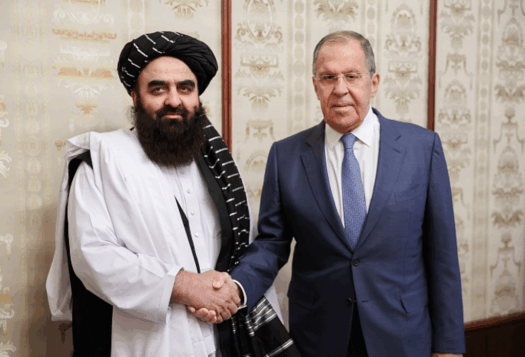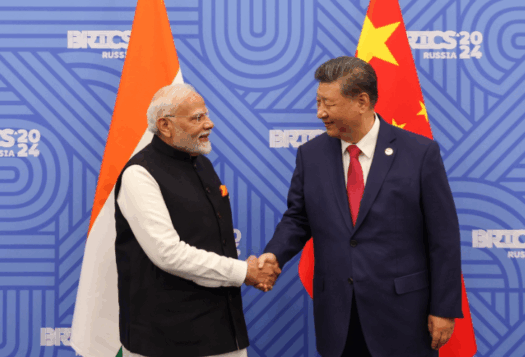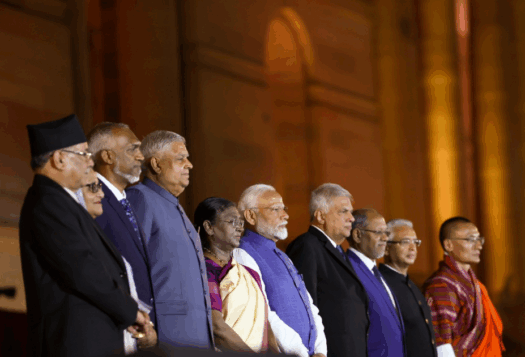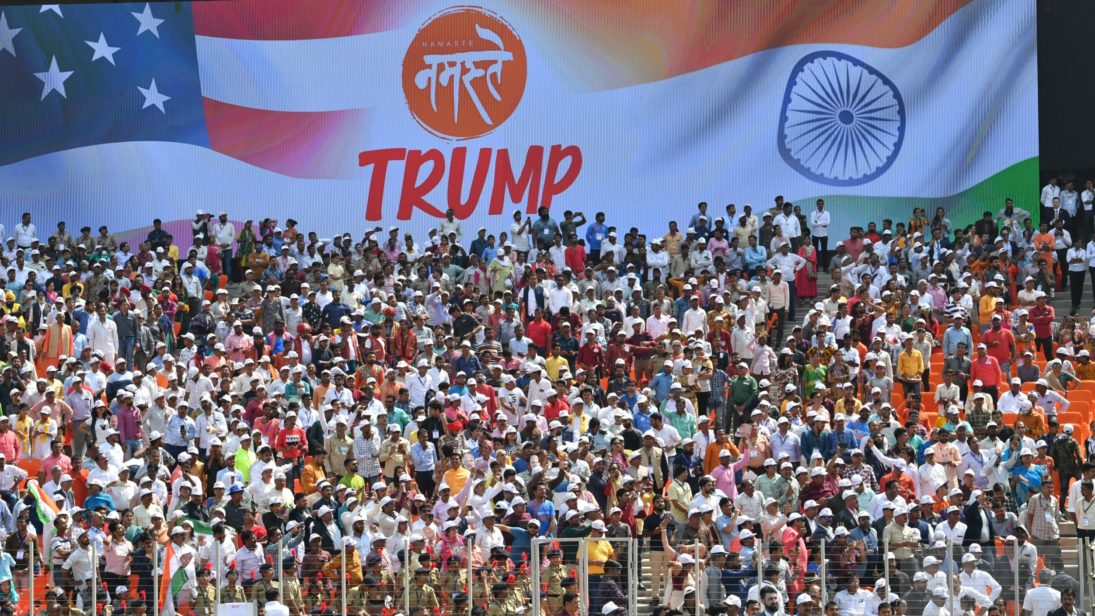
South Asia in general, and India in particular, has become a greater foreign policy priority for the United States. While India’s rising economic and strategic profile has helped the United States pivot towards India—because of the former’s free and open Indo-Pacific strategy—a shared apprehension vis-à-vis China has also proven critical to the United States’ engagement in Asia.
The 2020 U.S. Presidential elections could prove a turning point in a number of ways with respect to the United States’ India policy. In the United States—perhaps for the first time—some Indian-American voters are turning away from the Democratic Party, traditionally their party of choice. Both presidential candidates—Donald Trump, who is seeking re-election as the Republican nominee, and Joe Biden, the opposing Democratic candidate—are pandering to the Indian-American vote base, which constitutes about 5 percent (1.8 million) of the total American immigrant eligible voters. Bipartisan outreach to Indian-American voters, and a consensus among both parties for continuing a strong relationship with India, augurs well for future U.S.-India relations.
Bipartisan outreach to Indian-American voters, and a consensus among both parties for continuing a strong relationship with India, augurs well for future U.S.-India relations.
Indian-American Perceptions on Trump vs. Biden
Indian Americans have become an increasingly coveted source of political support, as no other immigrant group has demonstrated the same recent shift in voting patterns. This shift is occurring on the back of rising political conservatism in both the United States and in India and in light of the Trump-Modi bonhomie. According to a recent poll, at least 28 percent of Indian Americans support Trump, while 68 percent support the Democratic Party nominee, Joe Biden. By comparison, nearly 80 percent of Indian Americans voted for the Democratic Party candidate Hillary Clinton in 2016, while only 16 percent voted for Trump.
This emerging group of Trump supporters among Indian Americans has based its decision on a number of factors: first, perceived Trump-Modi conviviality, which is seen as solidifying U.S.-India relations; second, Trump’s tough stance on terrorism; third, Modi’s unprecedented diaspora outreach to connect with Indian Americans; fourth, a favorable perception of Modi in India. Insofar as broader political considerations are concerned, Trump is also seen as a president who is more likely to take a strong stand against Pakistan, India’s regional adversary, as compared to a Democratic candidate. This sentiment finds retrospective optimism in, for example, Trump’s tweet targeting Pakistan at the beginning of his presidency in 2018.
Trump’s unpredictable Twitter diplomacy has also taken the Modi government by surprise on a few occasions, such as when Trump claimed that Modi had asked him to mediate Kashmir. The Indian government had to clarify this was not the case. Overall, however, just as Modi has made an effort to connect with the Indian diaspora community in the United States, Trump remains popular among Indians in India. This popularity influences the political considerations of Indian Americans through familial ties in India, where Modi is widely perceived as a strong leader that India has long needed. According to a Pew research poll, a majority of Indians (56 percent) have confidence that Trump will do the right thing in world affairs and in relations between the two nations.
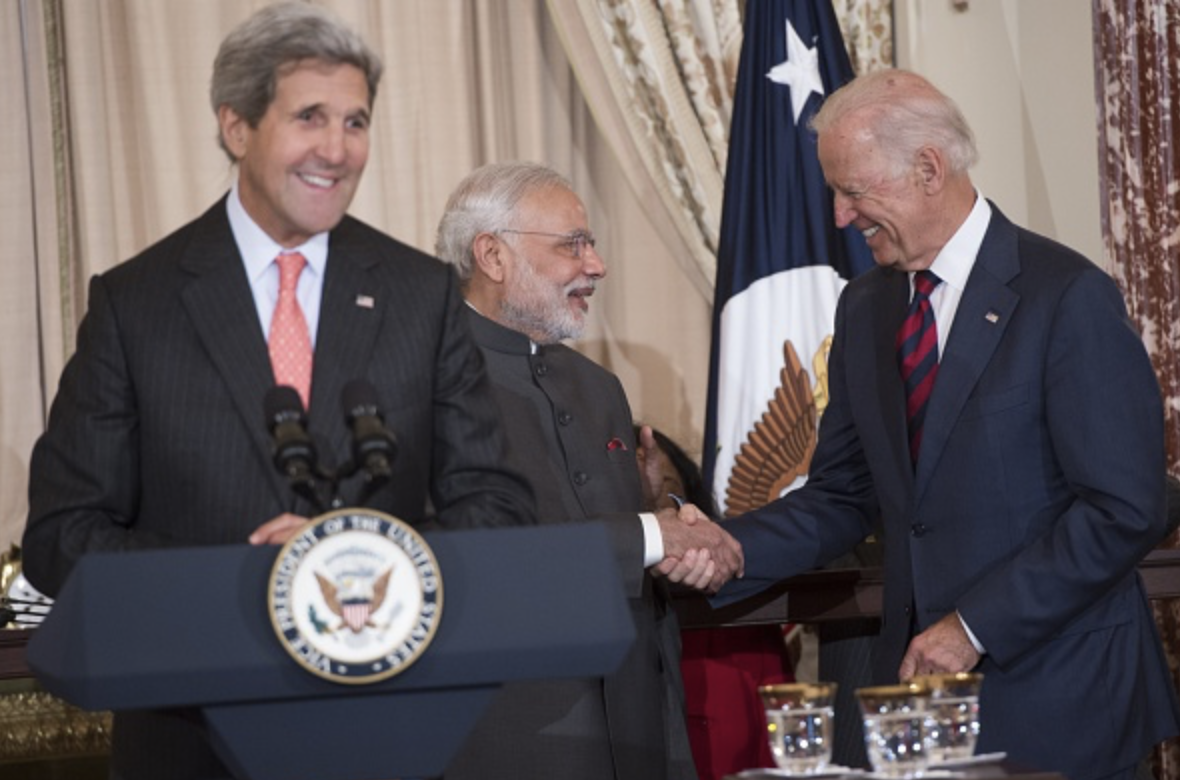
The same research also hints that, for people in India, Biden is not as visible and appealing as Trump. For example, Biden’s Vietnam War connections and his personal struggle (e.g. the loss of both his son and wife) fail to strike the same chord with the Indian people as they do with Indian-American voters. Perhaps the Democrats’ nomination of Kamala Harris was intended to bridge the gap created by the Indian-American voters who have been drawn towards Trump in the run-up to the 2020 election. Although Harris’ nomination could be critical in retaining the Democratic Party’s slipping Indian-American vote, the nomination is more significant for its attempt to weave together political, racial, and gender considerations in an unprecedented way.
India’s rather moderate response to the nomination of Kamala Harris as the Democratic vice presidential candidate reflects—perhaps deliberately—its ambivalent approach to the outcome of U.S. election. India’s government has indicated that it wants to maintain neutrality such that it is in a position to conduct business with either a Trump or Biden administration. India has also avoided falling into an ethnic trap in U.S. domestic politics by officially not reacting to Kamala Harris’ nomination politically. The Indian government’s position on the issue is that any statement on the nomination could be interpreted as an interference in U.S. domestic politics.
Although it has not addressed this officially, the current Indian government does identify some distinctions between the two candidates. Specifically, it feels that stability in diplomacy and predictability will be positive factors under a Biden presidency. Even so, India has approached the Biden nomination with caution, especially given some political incongruity between the Democratic Party in the United States and the Bharatiya Janata Party (BJP) in India. This includes Democratic Party leaders’ statements disapproving of the BJP’s handling of Kashmir—including one from Biden. Biden emphasized human rights issues in Kashmir after the abrogation of Article 370 of the Indian Constitution, which changed the administrative and political status of Jammu and Kashmir from an Indian State to a Union Territory and has resulted in a prolonged curfew.
However, Biden’s recent statements and approach have depicted more balance than they have previously in matters concerning India. As such, his statement that “India will be a high priority” endeavors to garner both internal political gains among Indian-American voters and to induce a sense of stability and continuity in one of the cornerstones to U.S. Asia policy. The United States’ emerging strategic competition with China, especially during the pandemic, has accentuated the value of relations with India. This is both in the domestic context of the run-up to the November elections in the United States and in the an international context, where India plays an indispensable role in creating a multilateral front to balance China.
On the other hand, the Trump presidency is unpredictable because it places heavier import on American interests than on bilateral or multilateral ones. For instance, Trump’s initial effort to take Pakistan to task has frayed overtime, even as antagonism towards China has featured prominently in his campaign rhetoric. Although China is an increasingly mutual concern for both the United States and India, India’s position vis-à-vis China is a bit more difficult to pin down.
Irrespective of who wins the U.S. Presidential election in November, political and strategic continuity in U.S.-India relations is likely.
Trump or Biden?
In the larger debate regarding whether Trump or Biden proves more beneficial for India, the jury is still out. There may be a greater sense of political convergence between Trump and Modi, an already tested chemistry, despite the former’s unpredictability, which has taken the Indian government by surprise in the past. The United States’ open support for India during the ongoing border conflict with China, its tough stance on terrorism, the strengthening of bilateral and multilateral mechanisms (e.g. the 2+2 dialogue and the Quad), and economic, political, and strategic convergences in the Indo-Pacific, are likely to make Trump the current Indian government’s preferred candidate. Despite this, any open admission of support for one U.S. presidential candidate over the other from Indian government officials or any ruling party functionary is unlikely.
Regardless of who wins the U.S. Presidential election in November, political and strategic continuity in U.S.-India relations is likely. India’s relations with the United States are primarily predicated on stable domains, such as defense relations, increasing trade dependence, regional concerns vis-à-vis China, and a combined posture in the Indo-Pacific region. These are likely to continue under a Biden presidency as well. Biden is also perceived as close to India given his role under the Obama administration in improving ties with New Delhi. He also boasts close ties to the India Caucus members and those who helped secure congressional approval for the 2008 U.S.-India civil nuclear agreement.
The Trump administration’s relationship with India brings added meaning to the elevation of India as a major defense partner through a sustained supply of critical platforms in the defense sector, some of which were purchased during the early stages of the ongoing India’s border conflict with China. Regular diplomatic interaction at the highest levels between India and the United States through the 2+2 and the Quad forums ensured not only sharing best practices, but also exchanges of joint regional responses during crises. At the regional level, the Indo-Pacific strategy has been a strong binder for U.S.-India ties, with increasing promise of bilateral interoperability and regional cooperation.
Despite existing sore spots in the U.S.-India relationship—including restrictions on H-1B Visas that affect Indian-American skilled workers in the United States, increased tariffs on items that impact export and import in both countries, and concerns from the United States on data localization in India—the Trump administration has provided a self-confessed quid pro quo mechanism for improving India-U.S. ties. Trump has never shied away from a return favor for most U.S. steps to help or trade with other countries, including India. Indeed, this mechanism could be an opportunity for India in a possible second Trump presidency, where New Delhi is looking to enhance exports and shift its supply lines from China in an emerging post-pandemic order. For now, however, New Delhi is keeping its powder dry for a possible Biden win.
Editor’s Note: The U.S. Presidential Election, held on November 3, 2020, holds significant implications for the United States, both domestically and in how it engages with the world. In this series, SAV contributors from Afghanistan, India, and Pakistan discuss how the election outcome may affect U.S. relations with their respective countries. Read the full series here.
***
Click here to read this article in Urdu.
Image 1: Narendra Modi via Twitter
Image 2: Saul Loeb via Getty Images
